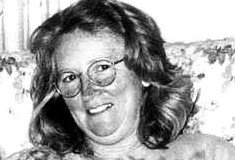Forensic Psychiatry
by Tayla Hogno & Grace Koster
Learning outcomes:
- to identify forensic psychiatry
- the different stages that mental health issues can be recognised in the criminal justice system
- how to identify if a criminal is mentally ill
- be able to identify if the individual is fit to stand trial
- identify mediators of mental illness and offending
What is forensic psychiatry?
Latin origins:
Forensic = forensis (public debate)
Forensic psychiatry pertains to individuals who are experiencing mental illness and have also been charged with a criminal offence.
(Edward et al. 2011)
Stages that psychiatry coincides with forensics:
- at apprehension by police
- in court
- whilst in prison
- whilst under orders
(Edward et al. 2011)
How do we determine if the offender was mentally ill at the time of the offence?
(Edward et al. 2011)
Are they fit to stand trial?
a defendant must be able to:
- Understand the nature of the charge
- Enter a plea to the charge and to exercise the right to challenge jurors or the jury
- Understand the nature of the trial (inquiry as to whether he or she committed the offence)
- Follow the course of the trial
- Understand the substantial effect of any evidence that may be given in support of the prosecution
- Give instructions to his or her legal practitioner
(Mental Health Coordinating Council 2015)
What now?
(Mental Health Coordinating Council 2015)
PAY ATTENTION!
mediators of mental illness and offending include:
- Substance abuse
- Early social diversity
- Social disadvantage
(Edward et al. 2011, Ogloff et al. 2004, Mullen et al. 2000, Taylor 2004, Heads et al. 1997, Monahan 2002)
Katherine Knight




